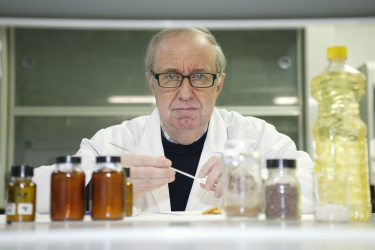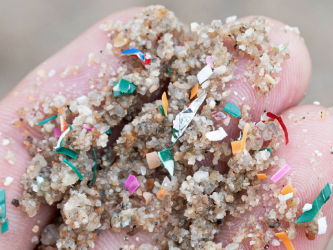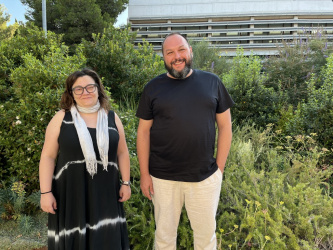Home

Clarivate Plc recently revealed its 2024 list of Highly Cited Researchers™, who are pointed out as influential researchers at universities, research institutes and commercial organizations around the world who have demonstrated significant and broad influence in their field(s) of research. Analysts at the Institute for Scientific Information (ISI)™ have recognized 6,636 Highly Cited Researchers in 2024 from more than 1,200 institutions in 59 nations and regions.
Prof. José L. Domingo, Emeritus Professor of Toxicology and Founder of TecnATox, was again included in that select list, being one of the 99 researchers of Spanish institutions. Prof. Domingo had been already recognized as Highly Cited Researcher in 2014 and 2015. This year, only two investigators from Universitat Rovira i Virgili have been awarded: Dr. Alex Arenas, in Physics, and Prof. Domingo, in the Cross-Field category.
Posted on 20-11-2024

"Each mussel grown in Catalonia contains, on average, 9 microplastics". This is one of the main conclusions of a study led by TecnATox researchers, who studied the presence of microplastics in bivalves cultivated in Catalonia and determined the effects of purification on the levels of these particles in mussels, curly oysters and scallops. This investigation was carried out in collaboration with researchers from the University of Florence (Italy) and the University of Barcelona, and it was funded by the Catalan Food Safety Agency (ACSA) of the Department of Health of the Generalitat de Catalunya. The full version of the report can be accessed on https://acsa.gencat.cat/ca/seguretat_alimentaria/avaluacio-riscos/estudis-avaluacio/estudis-dexposicio/microplastics-en-bivalves/index.html.
Dr. Joaquim Rovira was also recently interviewed by Tarragona Ràdio to talk about this study and the problem of microplastics. The interview can be listened at https://www.tarragonaradio.cat/joaquim-rovira-quan-mengem-musclos-o-ostres-estem-ingerint-microplastics/
Posted on 08-10-2024

That is the reason why in September 19, in Aula Magna at URV School of Medicine (9:30-13:40) an event took place to address different perspectives of the disease. Different research groups of the URV, including several members of TecnATox, currently participate actively in projects that aim to have a greater understanding about the molecular mechanisms of dementia. In addition, various invited researchers addressed these issues.
Posted on 17-09-2024

Improved well-being at work and increased cognitive skills. These are some of the main consequences observed after applying an eight-week programme based on mindfulness to a hundred primary school teachers in Camp de Tarragona. This investigation, led by a research team within TecnATox, provides pioneering results, especially in the neuropsychological field, an aspect that has been little studied until now and in which a significant improvement has been observed after the intervention. The results of the study have been published by the journal Mind, Brain and Education.
More information about this can be found at https://diaridigital.urv.cat/la-practica-de-mindfulness-millora-el-benestar-laboral-i-les-habilitats-cognitives-del-professorat/
Posted on 13-09-2024

Dr. Martí Nadal was interviewed by RAC1, the leading radio station in Catalonia, to talk about this issue. According to Dr. Nadal, "What they say in their documents and publications on social networks has all the scientific basis in the world. The problem is not the individual exposure to each of these substances, but to all of them together—the cocktail effect—and the long-term accumulation, especially of carcinogenic substances, no matter how low the dose is."
Posted on 30-07-2024

The first project is entitled Development of a platform based on Caenorhabditis elegans for the evaluation of new bioactive ingredients against obesity (Bio_elegans), and has been awarded to the Nutrigenomics group of the Department of Biochemistry and Biotechnology, with a team of researchers formed by Enrique Calvo, as principal investigator, Miquel Mulero, Francisca Isabel Bravo and Néstor Ibarz.
The main objective is to create a screening platform for bioactive compounds against obesity using the nematode C. elegans as a model. The implementation of this project will make possible to evaluate the compounds produced by the platform of peptide hydrolyzates that the Nutrigenomics group has and to offer anti-obesogenic activity analysis services to companies interested in the commercialization of bioactive ingredients. The availability of a platform capable of rapidly screening these potential ingredients as anti-obesity agents opens the door to the development of high-throughput methods to discover and characterize valuable natural compounds. C.elegans is presented as a flexible, fast, economical animal model with a high level of extrapolation to humans, making it an ideal candidate to develop this screening platform for bioactive compounds. The development and application of this platform is expected to represent a high-performance and innovative service, encouraging collaboration with companies in the agri-food sector. In addition, it is believed that the implementation of this technology will mean a significant technological enrichment for the URV and a new impetus to attract external funding.
The second awarded project is related to microplastics, and it counts with the participation of Joaquim Rovira and Nora Expósito as experts in this field. Joan Josep Carvajal Martí (Department of Physical and Inorganic Chemistry), principal researcher of the project, and his team have developed the prototype of a device, called μ-PlàsTIC, which determines in real time, in situ and continuously, the size, the shape, the number of particles and the chemical composition of microplastics present in drinking water, food and the environment. This analysis is essential to identify them and modify their industrial processes in order to reduce or eliminate their production.
It must be highlighted that they are not the first researchers of TecnATox awarded with an R2B. In 2023, Miquel Mulero received the R2B award for the project Integrated technical approach for the discovery of new bioactive compounds with beneficial properties for skin health. Previous awarded investigators include Marta Schuhmacher, who led the project Integration of innovative techniques to measure the amount of micro-nano plastics in environmental samples (2019), and José L. Domingo, principal investigator of Ribefood 2012. A computational tool for a healthy and pollutant-free diet (2012).
Posted on 23-07-2024





